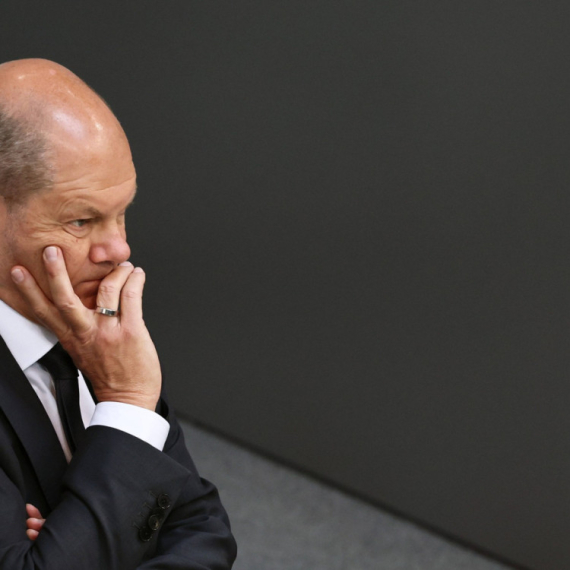Parliament debating budget review
Parliament has begun debating the 2009 budget review and accompanying anti-crisis laws under emergency procedure today.
Friday, 24.04.2009.
09:29

Parliament has begun debating the 2009 budget review and accompanying anti-crisis laws under emergency procedure today. Finance Minister Diana Dragutinovic stressed that the budget review was one of the instruments of the government’s anti-crisis package. Parliament debating budget review Outlining the measures, she said that, according to the latest forecasts, GDP would fall by two percent, adding that imports were expected to fall by 21.8 percent this year and export by 15 percent. The budget review will see revenue cut by EUR 423mn to EUR 6.9bn, and spending by EUR 306mn to EUR 7.6bn. The deficit will increase to EUR 746mn, which is 2.3 percent of GDP. "The biggest cuts of EUR 423mn will be in discretionary rights pertaining to the costs of the state apparatus, purchasing of goods and services, representation costs, official travel and mobile phone usage,“ Dragutinovic explained. She said that raising excise on fuel and the introduction of a temporary 10 percent tax on mobile phone rates would generate an extra EUR 42.4mn and EUR 30mn respectively. Higher taxes on luxury vehicles would bring in a further EUR 52.8mn. Considerable savings would be generated, she said, by cutting salaries in public administration, the public companies, government agencies and organizations, and a ban on new job creation. Although pensions will be frozen in 2009, Dragutinovic said that a further EUR 242mn would be added to the pension fund, while the National Employment Bureau would receive over EUR 50mn than initially planned and the Health Fund EUR 30mn less than planned. “The review will see subsidies cut by EUR 73mn, the majority of which will be in the field of agriculture,“ said the minister. The set of anti-crisis laws includes a bill on a temporary cut in public sector and public administration salaries. MPs will consider a law envisaging pay cuts for all salaries above RSD 40,000 (about EUR 430) in public administration and all government agencies and organizations, including the National Bank of Serbia, the Serbian Parliament and the Chambers of Commerce. Salaries of between RSD 40-100,000 will be cut by 10 percent, while salaries over RSD 100,000 (EUR 1050) will be subject to a 15 percent decrease. Parliament (B92, archive)
Parliament debating budget review
Outlining the measures, she said that, according to the latest forecasts, GDP would fall by two percent, adding that imports were expected to fall by 21.8 percent this year and export by 15 percent.The budget review will see revenue cut by EUR 423mn to EUR 6.9bn, and spending by EUR 306mn to EUR 7.6bn.
The deficit will increase to EUR 746mn, which is 2.3 percent of GDP.
"The biggest cuts of EUR 423mn will be in discretionary rights pertaining to the costs of the state apparatus, purchasing of goods and services, representation costs, official travel and mobile phone usage,“ Dragutinović explained.
She said that raising excise on fuel and the introduction of a temporary 10 percent tax on mobile phone rates would generate an extra EUR 42.4mn and EUR 30mn respectively.
Higher taxes on luxury vehicles would bring in a further EUR 52.8mn.
Considerable savings would be generated, she said, by cutting salaries in public administration, the public companies, government agencies and organizations, and a ban on new job creation.
Although pensions will be frozen in 2009, Dragutinović said that a further EUR 242mn would be added to the pension fund, while the National Employment Bureau would receive over EUR 50mn than initially planned and the Health Fund EUR 30mn less than planned.
“The review will see subsidies cut by EUR 73mn, the majority of which will be in the field of agriculture,“ said the minister.
The set of anti-crisis laws includes a bill on a temporary cut in public sector and public administration salaries.
MPs will consider a law envisaging pay cuts for all salaries above RSD 40,000 (about EUR 430) in public administration and all government agencies and organizations, including the National Bank of Serbia, the Serbian Parliament and the Chambers of Commerce.
Salaries of between RSD 40-100,000 will be cut by 10 percent, while salaries over RSD 100,000 (EUR 1050) will be subject to a 15 percent decrease.




























































Komentari 0